Gerry Morgan's roller-coaster success story with James Bay
The sticksman talks his approach, pivotal moments and his love for James Bay's music
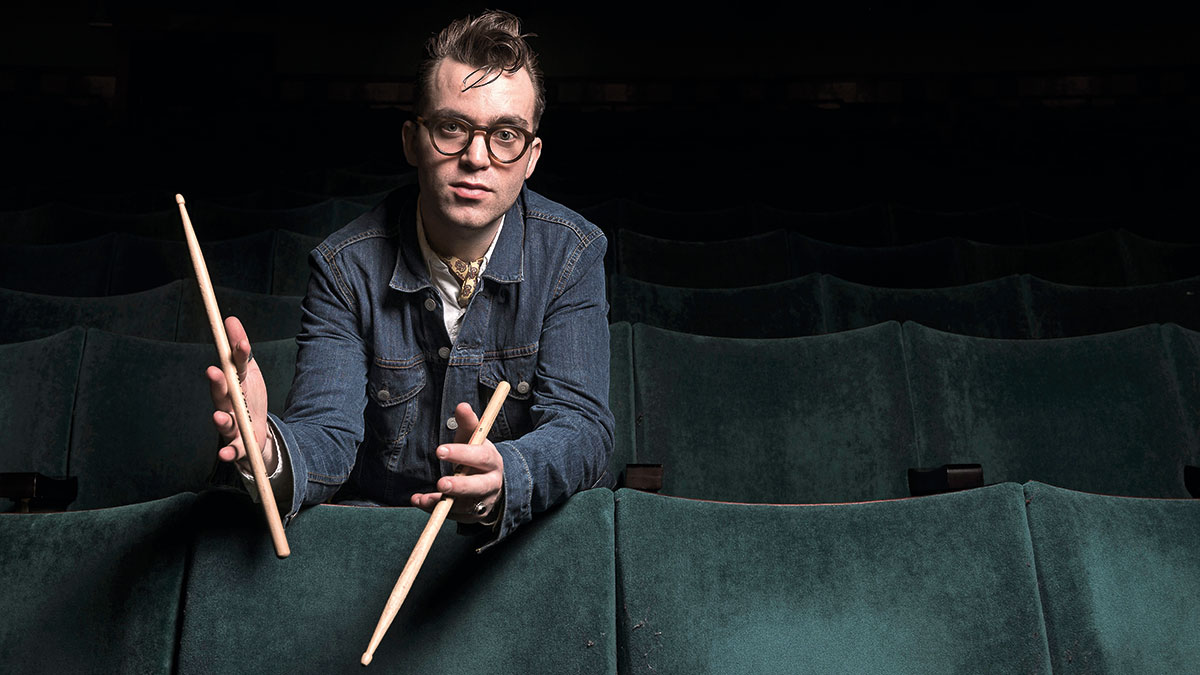
Gerry Morgan talks his roller-coaster success story with James Bay
Since releasing career-defining anthem Hold Back The River in 2014, UK singer-songwriter James Bay has deservedly taken the world by storm, enjoying the kind of success that most artists twice his age could only dream of.
After winning the Critics’ Choice Award at 2015’s Brit Awards, Bay went on to win Best British Male Solo Artist at 2016’s ceremony, as well as being nominated for three further categories. Meanwhile, across the pond, James was nominated for three Grammy Awards.
His 2015 debut album Chaos And The Calm debuted at Number One in the UK and was the eighth biggest selling album of the year, chalking up over 600,000 sales thus far while it also peaked at Number 15 on the US Billboard 200.
There’s a lot of respect for each other and that’s very important because if you’re onstage with friends, then you can open up and feel comfortable.
Gig-wise, there have predictably also been a huge number of highlights for Bay and his live band, who’ve been playing with him for over two years now. Drummer and multi-instrumentalist Gerry Morgan actually first hooked up with James a few months before the full line-up was cemented, backing the singer on keys and percussion for a number of intimate club gigs and US tour dates.
When we catch up with Morgan, the guys are just hours away from playing the third of four sold-out shows at Hammersmith’s 5,000 capacity Eventim Apollo venue. Later that evening, the tightness, solidity and verve of the five-piece band is there for all to see, suitably matched by Bay’s own towering stage presence, exquisite vocals and virtuosic guitar-playing. As Gerry explains, having fun, being close friends and having mutual musical respect are all important parts of the band’s dynamic.
“It’s very, very good fun,” he says. “We all have a laugh. We’re all good friends and we get on musically together. There’s a lot of respect for each other and that’s very important because if you’re onstage with friends, then you can open up and feel comfortable.
“Whenever you’re going out on a limb to try something new with your phrasing, your colours or your harmony, you need to feel confident with the people around you and feel like you have their support."
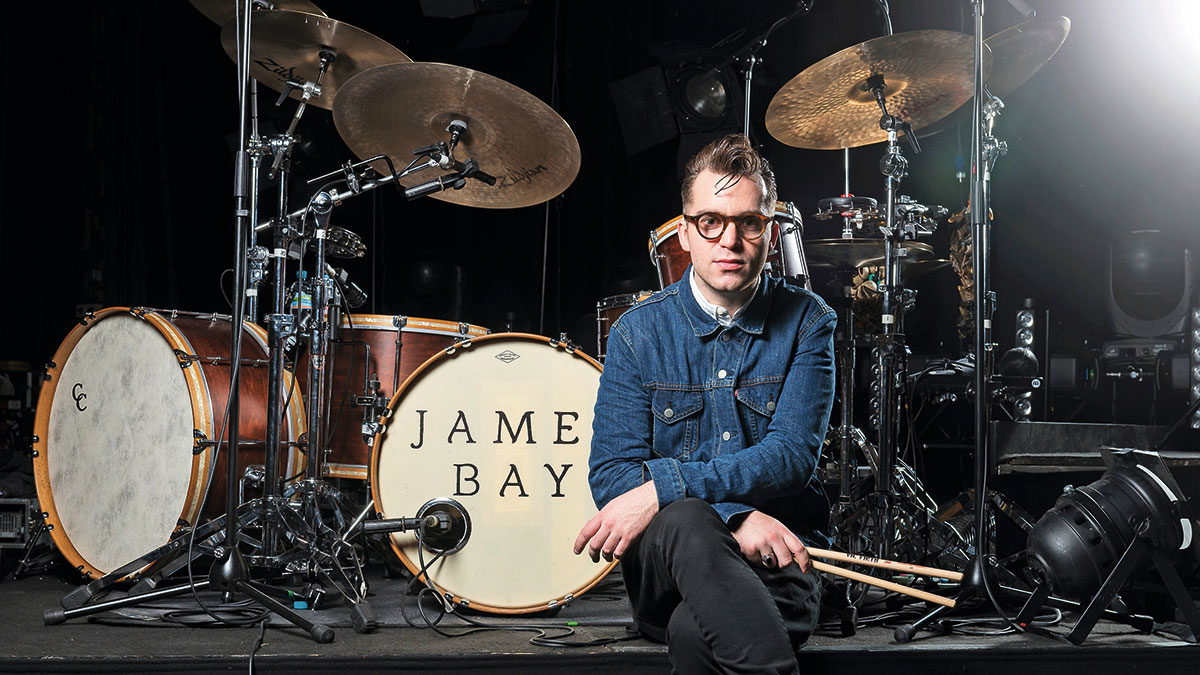
Starting out
Gerry Morgan, who was born and brought up in Newry, County Down in Northern Ireland, was very young when he first started dabbling with a variety of musical instruments.
“I started messing about with music when I was about four or five,” explains Gerry. “I played piano first and then classical violin. Drums came in when I suppose I was about 10 or 11 but then I started to take it really seriously when I was about 16 or 17. I did have lessons.
As for Morgan’s main drumming inspirations, he cites some serious song players.
“At a young age, I think it was anything that I got my ears onto,” says Morgan. “Mum and Dad weren’t really a music buying couple. There wasn’t a lot of music in the house per se. They liked music but they just didn’t consume or buy it.
“A lot of it came from my older brother and then a lot of it came from friends and just kind of sourcing it and taking records out from the public library. When I was old enough and I started gigging, all the gig money was just going into records and DVDs.
“An all-time classic was The Last Waltz by The Band and Levon Helm became a big influence on my approach to drumming. I sing on James’s gig and so he’s been a big influence. I love pocket players and I love song players.
“I love Jay Bellarose, Steve Gadd, Steve Jordan, Jim Keltner, Aaron Sterling, Ash Soan. Jeremy Stacey is great. These guys I listen to a lot. Jim Keltner and Jay Bellarose have influenced my playing a lot. Then Irish traditional music is a big influence as well. I love trad music, I love folk music and I collect a lot of world percussion.
“I try to use as much as possible on the gig and my house is full of weird and wonderful percussion instruments but it gets a bit annoying when you’re tripping over stuff!”
Morgan recalls a wide and varied number of pivotal moments during his development as a drummer and percussionist. Fervent dedication has always come as second nature to him.
“There were a lot of moments growing up for me and a lot of opportunities in Ireland and abroad to play,” Gerry explains. “I always played most nights of the week with different ensembles whether it was a rock band or a concert band or a wind band or a jazz orchestra or a symphony orchestra.
“There were all these things happening every week for me with practices and rehearsals after school. On Saturdays, I used to get up at seven, go to symphony and then, after that, get a train to Belfast to play with a jazz band. Then I’d come back from jazz band at five, go to violin practice, and then my dad would drop me off to a gig to play drums that night. So my upbringing was always full of music.”
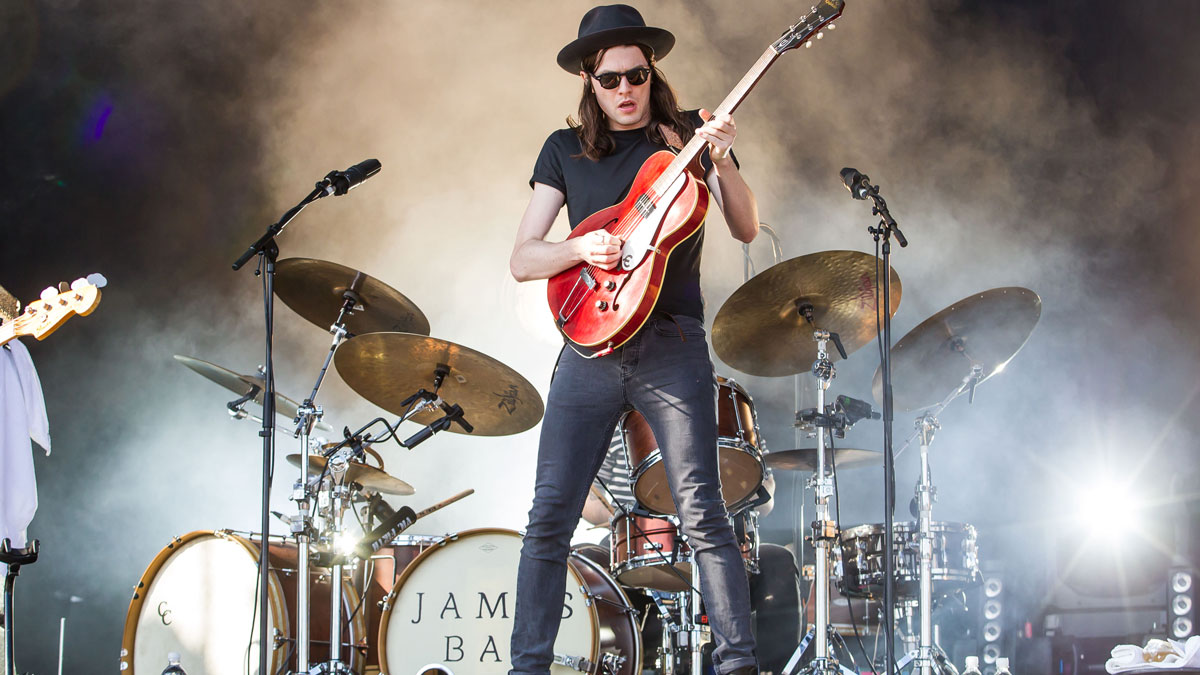
Home James
It was around two and a half years ago that Gerry Morgan first began working for James Bay, initially as a multi-instrumentalist and sole backing musician for the on-the-rise singer-songwriter. The pair actually first met during a Kodaline tour.
“I was drumming and MD’ing for a band that were on Universal and who were on the bill as well,” Morgan recalls. “They were main support and James would open up the whole night. I would just watch James play every night for two and a half weeks and I was pretty much blown away when I saw him the first night.
"He was like, ‘Have you got an email address?’ and I said, ‘Only if it’s about me playing drums!’"
“We spoke in between sound-checks and after shows, we got on well and we liked the same music. I thought he was a nice guy and he was really talented. I was like, ‘This guy’s great!’ I always wanted to get up and play with him because my kit was on the stage and he was on electric guitar and singing and I was like, ‘I’ll just go ask him if I can go up and play with him,’ but I never had the guts to.
Then, after the tour, he sent me a tweet. He was like, ‘Have you got an email address?’ and I said, ‘Only if it’s about me playing drums!’ And he was like, ‘Funny you should say that because that’s what it’s about!’ That’s how we sort of got to meet each other.
We just started hooking up and, during the first year, we did an American tour for six weeks. It was just me and James. I was playing a Roland keyboard, a cajon, Peruvian seed shakers and some African goats’ toes, and then I was singing some BVs as well. The band came some months later.”
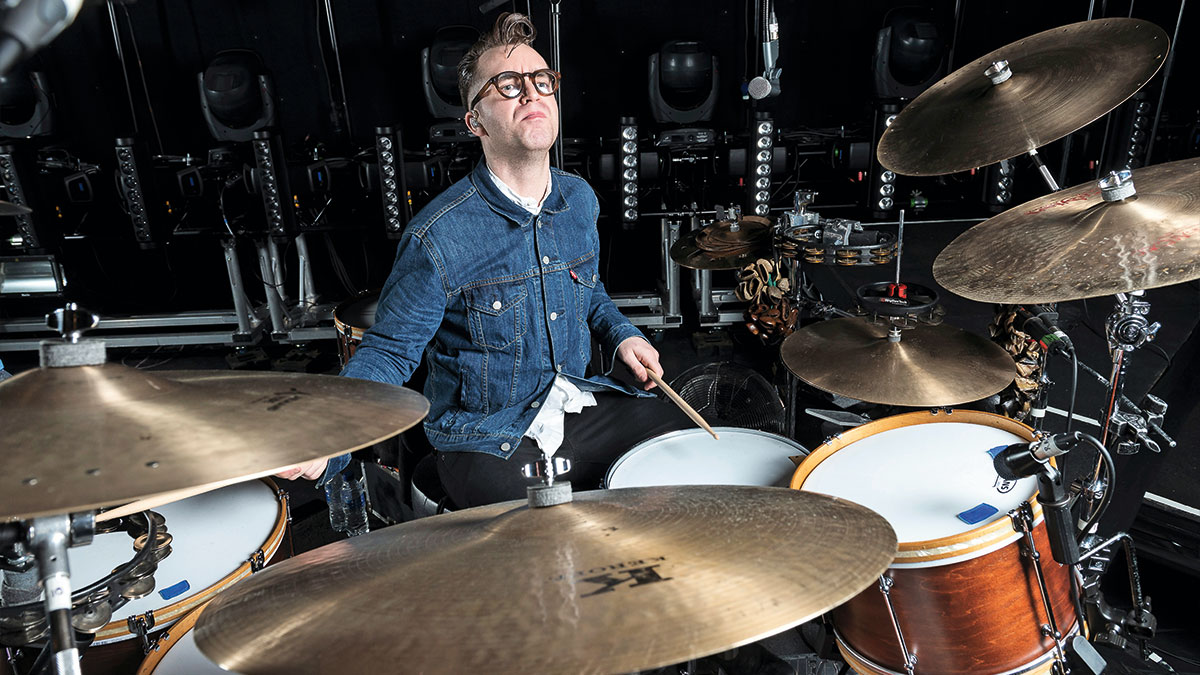
Parts and personality
James Bay’s debut album Chaos and the Calm was recorded at Blackbird studios in Nashville with Jacquire King before Gerry started working for James.
The drummer on those sessions was seasoned Nashville session man Ian Fitchuk. How did Morgan approach taking these songs onto the stage and how much of his own personality has he put into the live arrangements?
“The approach was the same as playing with any artist,” says Gerry. “You have to go away and understand the recordings and become embodied with the music and think in terms of the set-up you’ll need and what you’ll need tonally.
“What drums am I going to use? What cymbals am I going to use? What sizes? How am I going to play this groove? Is this part double-tracked, triple-tracked or many-tracked? With percussion, what’s the most important percussion line? Does that need to be included? Where does the feel really sit on each track? What’s the most important component of this whole orchestrated percussion and drums backing track?
“You cannot be taking the parts on a journey too far because you’re there to support someone and make them feel safe and in good hands.”
“There is very heavy percussion on the album as well as drums and I don’t want to be using any [backing] tracks. It all has to be live. I’m playing all the drums and percussion and I want to cover as much of that as possible. You also have to be very respectful to the way it was recorded but then James also wants me to interject a little bit of my own personality and musicality into it. It’s all done very respectfully but I’m also given an opportunity to have fun with the parts as well in terms of embellishments and things like that.”
Gerry had plenty of chances on the album to inject some of his own personality into the beats. “On the album, Let it Go is very much a kind of processed lo-fi drum track with a lot of percussive elements,” explains Morgan.
“So, for the live situation, I’ve taken it to much more of a military, really low-tuned, muffled, powdery snare drum with kind of like a Steve Gadd pattern. It gives you the bittiness of programs but it gives you a nice backbeat and it’s very tonally earthy for the live situation.
“Then I open it up to a half-time beat that opens up with the cymbals and stuff during the middle-eight and outro chorus. That’s not on the record and also the groove isn’t on the record at all. It’s my own version of the beautifully recorded part that was originally there.
“Sometimes, for certain tracks, you do have to realise that you’re in a live environment and you have to approach your music and your drumming with a listener’s mind. You have to guide them sometimes so you have to build it up to choruses and break down sections and mark the sections maybe in a bit more of an obvious way... but it’s always done with the greatest amount of respect for the original music and part.”
One aspect of James Bay’s live sets that always keeps the material fresh and the audience – not to mention the band – on their toes is the fact that many of the songs’ intro sections are improvised.
“You cannot be taking the parts on a journey too far because you’re there to support someone and make them feel safe and in good hands,” says Gerry.
“But there is improvisation in the instrumental moments that we do. The intros can go quite jammy at times and can be completely improvised. Even the structure of those intros may not be pre-determined. It’s all off-the-cuff and then we’ll go into the song.
“Then you’ve got to go back to thinking about the song and about the structure and about the part and go back to, ‘This is me. This is where I need to sit. Let the song be the song’. We do a lot of jamming in sound-checks though. We do a lot of blues and rock and funk and soul stuff. That’s a love for all of us. Nothing really beats a 12-bar rhythm and blues shuffle!”
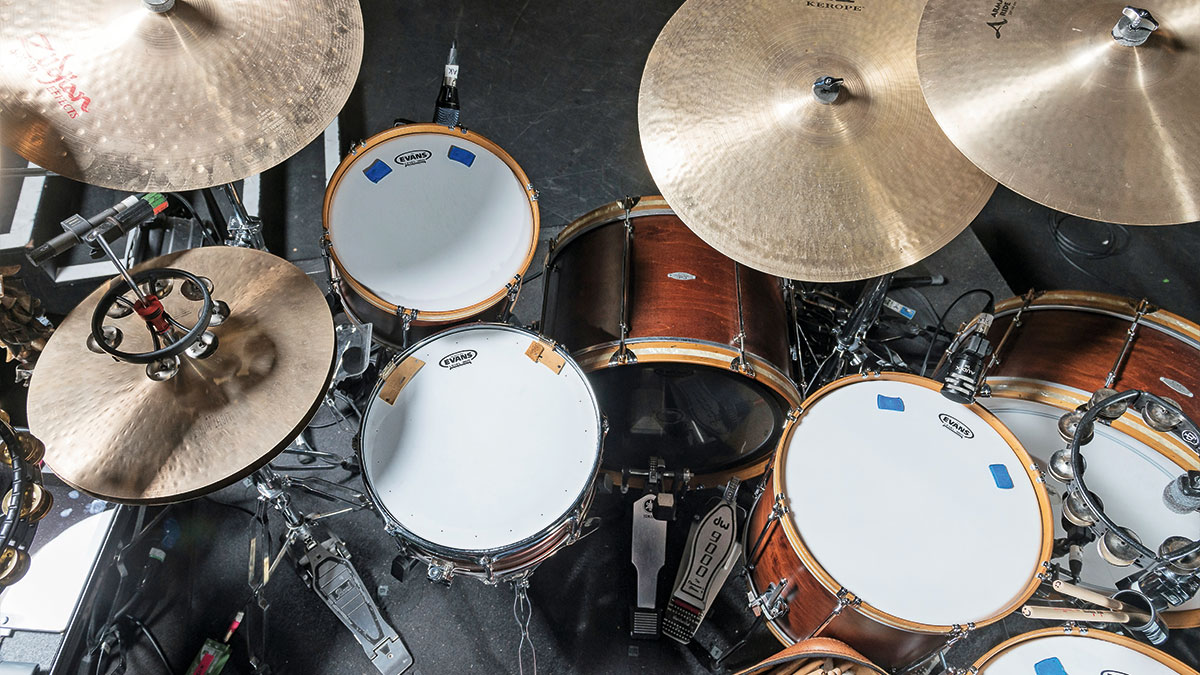
Future beats
With any new material he’s penning, James Bay always has an intuitive idea of what he’s looking for in the drum parts.
“James has recently been bringing new ideas to the table and he’ll go, ‘Right, I want this kind of feel and I’m thinking about this kind of reference,’” explains Morgan.
“We listen to the same artists and the same records so that’s always good. Quite often, I’ll think, ‘I know exactly what he wants’, which is good. He’s very clear in what he wants. It’s all up in his head and it’s then my job to sort of coax it out of him or take on exactly what he says.”
"There’s a lot of percussive guitar-playing with his style. His riffs are all very rhythmical."
James himself knows a thing or two about our instrument, it seems. “He can play the drums!” enthuses Gerry. “He can play the drum part to Superstition for example! hH’s always tapping on things. He loves cross-rhythms.
“You can hear that coming out in his music, even in the way he plays his guitar. There’s a lot of percussive guitar-playing with his style. His riffs are all very rhythmical. There would be no melody without rhythm, as everyone says.”
Having worked at close quarters with James Bay for the last few years, Gerry Morgan has witnessed first-hand the singer’s incredible rise from the pair’s very first intimate gigs together through to the recent major sold-out tours and festival appearances, as well as James’s crowning as Best British male solo artist at the Brits. It’s been a veritable rollercoaster for everyone involved and Gerry has loved every minute of it.
“We’ve seen a lot of great things and we’ve shared a lot of great times and we’ll continue to do so and grow together as friends and as musicians. We spend so much time with each other. I didn’t think about it much then really but it’s amazing that it’s worked out this way, isn’t it?
“But first and foremost, man, it’s about music and it’s about playing and being expressive and playing his songs and projecting him in the correct manner to whoever’s listening, and that’s kind of where my head is most of the time... not, ‘Oh, how many people are there here tonight?!”